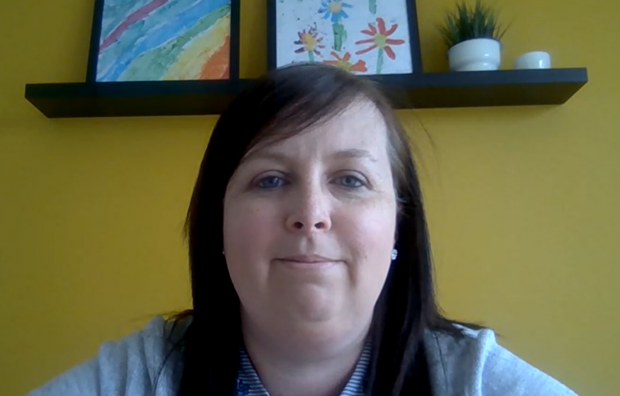
Emma Booth is Head of English at The Derby High School, Bury, where she has worked for the last 5 years. In this blog she explains how she has managed the shift to remote education during the COVID-19 outbreak.
After two months of COVID-19 lockdown, I feel now is a good opportunity to reflect on the challenging, but also inspiring, journey that has faced our English department in trying to deliver a successful and engaging remote curriculum.
On Wednesday 18th March, I had just arrived to collect my daughter from after school club when my phone pinged with the government’s announcement that schools would be closing in two days’ time due to the COVID-19 pandemic. Despite knowing, deep down, that this news was on the horizon, I felt a huge, emotional wave wash over me: relief, devastation, panic - concerns for both the students and staff, as well as the implications for my own family.
Making the curriculum work for us
It might sound obvious, but something we realised early into lockdown was the need to be realistic and flexible with our expectations of the students. Whilst many have embraced remote working, unfortunately there were some students who were unable to engage with it as much as we would have liked. With this in mind, we decided to adapt our curriculum to ensure that it was accessible by all our pupils. We moved some topics into the next academic year and brought forward others that work better for remote working. I think having this flexibility has helped to reduce stress for both staff and students during this unprecedented time.
Maintaining standards in turbulent times
A key challenge we faced during this difficult period was maintaining the high standards we set our students whilst remaining sensitive to their changing circumstances. One way we accomplished this was providing students with work that mirrored the basic structure of their timetables – for instance, Key Stage 3 students normally have four, one-hour lessons of English per week and so are now provided with stimulating and engaging material that should take roughly four hours to read and complete. Lessons were broken down into very clear, manageable chunks to allow students to navigate their way through them and completed work is then emailed to their teacher. Providing clear, detailed instructions has meant that we have received high quality student work throughout the lockdown. This routine encourages students to continue learning with enthusiasm and promotes the formation of ‘good habits’ ready to return to school when the time is formally announced.
Making our remote curriculum accessible for all
In our school, we have a high proportion of disadvantaged students who face many barriers to their learning. One of the reasons I love working there is the resilience that is at the core of our curriculum - and this lockdown period has been no exception! Much of the work we provided to students has been communicated via email or our online platform, but unfortunately there are students in the school who do not have ICT access at home. Even before schools closed, we were prepared for this challenge and quickly identified those students who would need extra support during lockdown. We provided laptops to families that needed them, and we regularly check in with our most vulnerable students. We also provide weekly hard copies of the revised English curriculum that can be collected from the school office and completed at home, meaning every student can access their work.
Embracing the challenge
Whilst lockdown has certainly been an interesting time to be a head of department, it has proved to me why I became a teacher - to make a difference; to face adversity; to reflect and adapt to ever-changing times; to embrace creativity and inspire others to do the same. As an English department, I believe the way we have adapted to this situation has helped make a significant difference to the lives of the students that we teach. And, therefore, I am immensely proud to be a teacher during these testing times.
Remote education during COVID-19
The DfE is supporting vulnerable and disadvantaged children and young people who do not have access to a digital device during the coronavirus (COVID-19) outbreak. Laptops and tablets will be provided to support remote education and help children and young people stay in touch with social care services.
Find more information on remote education during coronavirus (COVID-19).
Want to receive blog posts in your inbox?
2 comments
Comment by Merfat Ali posted on
The COVID-19 pandemic not just changed our life dramatically; it also changed education, with the distinctive rise of e-learning. Online learning has been shown to increase retention of information, and take less time, meaning the changes corona virus have caused might be here to stay. I think the adoption of education technology and flexible learning already facilitated the sudden shift. The only challenges that will remain always are providing access to e-learning for disadvantaged students and maintaining standards. This pandemic taught us how to overcome those challenges effectively through providing laptops and tablets.
Comment by Lavern Johnson posted on
The COVID-19 pandemic, I think has given meaning to how teachers can deliver pedagogy learning remotely to learn effectively to meet learners needs in a every changing Society.